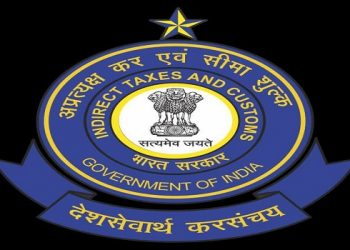In the landmark judgement of Safari Retreats Private limited, Hon’ble Orissa High Court has allowed ITC of goods and services used for construction of shopping mall against GST payable on rent received from tenants of such shopping mall.
Facts of the case:
The case of the petitioners is that the petitioners are mainly carrying on business activity of constructing shopping malls for the purpose of letting out of the same to numerous tenants and lessees.
Assessee had taken ITC of all the materials used in construction of such shopping mall and the company was going to use the same for setting off output liability on rental income. However the authorities didn’t allow the claim of such ITC and asked the assessee to pay the tax on output liability without taking any such ITC, as the ITC was blocked u/s 17(5)(d).
It was contended by the petitioner that ITC should be blocked if the construction has been made for sale of property after receiving completion certificate as GST is not payable on such sale and chain of GST breaks, whereas in case of assessee, the constructed property is going to be rented out and GST will be paid on such rent hence no chain of GST gets broken and therefore ITC should be allowed to assessee.
Held by High Court:
The very purpose of the Act is to make the uniform provision for levy collection of tax, intra state supply of goods and services both central or State and to prevent multi taxation.
Therefore, the contention which has been raised by the learned counsel for the petitioners keeping in mind the provisions of Section 16 (1)(2) where restriction has been put forward by the legislation for claiming eligibility for input credit has been described in Section 16(1) and the benefit of apportionment is subject to Section 17(1) and (2). While considering the provisions of Section 17(5)(d), the narrow construction of interpretation put forward by the Department is frustrating the very objective of the Act, in as much as the petitioner in that case has to pay huge amount without any basis. Further, the petitioner would have paid GST if it disposed of the property after the completion certificate is granted and in case the property is sold prior to completion certificate, he would not be required to pay GST. But here he is retaining the property and is not using for his own purpose but he is letting out the property on which he is, covered under the GST, but still he has to pay huge amount of GST, to which he is not liable.
In the view of the Matter, in our considered opinion the provision of Section 17(5)(d) is to be read down and the narrow restriction as imposed, reading of the provision by the Department, is not required to be accepted, inasmuch as keeping in mind the language used in (1999) 2 SCC 361 (supra), the very purpose of the credit is to give benefit to the assessee. In that view of the matter, if the assessee is required to pay GST on the rental income arising out of the investment on which he has paid GST, it is required to have the input credit on the GST, which is required to pay under Section 17(5)(d) of the CGST Act.
You can read the full judgement HERE.
If you have any issue with the download you can submit a request in Contact Us form.
If you need assistance you can ask a question to our expert and get the answer within an hour or post a comment about your views on the post and also subscribe to our newsletter for latest weekly updates.














Is any updates came in this matter from supreme court judgement?
We believe there is no update as of now. Regards, Team Taxontips.com
Any update on this case law since it was pending for hearing before suprement court
No there is no judgement on this from Supreme Court.
Regards,
Team Taxontips.com